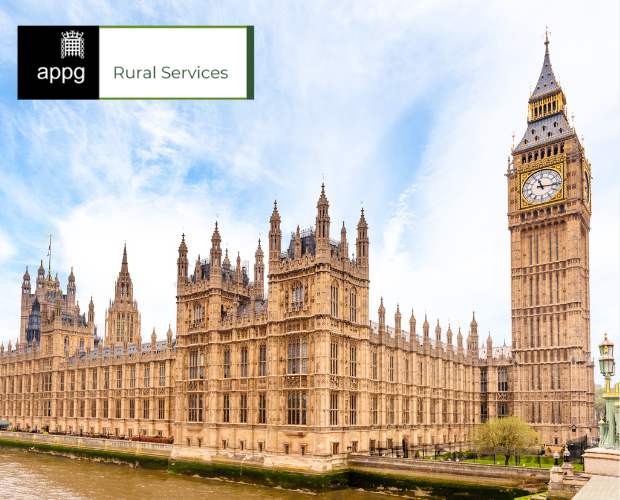T: 01822 851370 E: [email protected]
RSN Voices Serious Concerns Over ‘Fairness’ Of Settlement
Read here...
A new policy framework from the Rural Services Network Every person, in every place, deserves the chance to thrive — including those living in rural, coastal and small-town communities. The Rural Services Network is proud to launch Delivering for All:...
Following last week’s Annual General Meeting of the All-Party Parliamentary Group (APPG) for Rural Services, the Group’s Chair, Sarah Dyke MP, has written separately to Alison McGovern MP, Minister of State for Local Government and Homelessness, setting out her concerns...
The House of Commons Health and Social Care Committee has published a new report, First 1000 Days: a renewed focus, examining how effectively England is supporting children and families during the critical period from conception to age two. The inquiry...
The government has published updated national design guidance aimed at raising the quality of new housing developments and creating neighbourhoods that are healthier, safer and more resilient to climate change. The guidance, forms part of a wider package of planning...
The government has confirmed it will bring forward legislation to postpone local elections for a number of councils undergoing local government reorganisation, citing the need to free up capacity to complete the transition process. In a recent announcement published by...
The All-Party Parliamentary Group (APPG) for Rural Services held its Annual General Meeting at Westminster last week. The meeting brought together MPs and Peers to agree the Group’s focus for the year ahead with the Rural Services Network continuing to...
Britain risks falling further behind global competitors unless persistent gaps in mobile and broadband coverage are tackled and the digital landscape overhauled, parliamentarians warn in a new report. The Digital Communities All-Party Parliamentary Group (APPG) warns that an ongoing lack...
A new report examining rural and island communities in Scotland has highlighted growing pressures on childcare and older people’s care, set within a wider analysis of demographic change, workforce availability, connectivity and economic sustainability — challenges that closely mirror those...
Ofgem is inviting members of the public to take part in new user research exploring how renewable energy initiatives can better serve local communities, in both urban and rural areas. The research aims to understand how renewable energy schemes are...
The National Rural Crime Network (NRCN) has published its Annual Report 2025, setting out a year of progress in raising the profile of rural crime and strengthening the case for better recognition, resourcing and policy responses. The report highlights how...
NEWSLETTER
Sign up to receive all our latest news and updates.
HOT TOPICS
Amid reduced public spending, fair resource allocation across regions is crucial. Despite a population larger than Greater London, rural areas receive significantly less funding for essential services, even though delivering these services in rural areas is more expensive.
Economic growth is widely acknowledged as essential for national wealth and prosperity and is a priority for political parties. Rural economies, employing millions and home to a higher proportion of small businesses, have potential for growth if barriers are removed.
Rural residents face distinct healthcare challenges, including limited access to transport, longer distances to medical facilities, an aging demographic, housing inadequacies, digital connectivity gaps, and difficulties recruiting health and care workers.
Rural communities are grappling with a severe affordable housing crisis, marked by high house prices, a lack of affordable housing, elevated living costs, and lower incomes, threatening their sustainability and vitality.
Transport is vital for the quality of life and economic health of rural areas, yet it faces challenges such as infrequent public bus services and less Government funding compared to urban regions.
Rural areas, encompassing a substantial portion of England's population and land, play a pivotal role in combating climate change and achieving the net zero target.
In an increasingly digital world, the lack of robust digital infrastructure in rural areas severely limits access to crucial services and stifles economic growth.
A future-focused vision for rural communities involves not just building the right homes in the right places but also ensuring thriving, sustainable communities.
SIGN UP TO OUR NEWSLETTER
Sign up to our newsletter to receive all the latest news and updates.













